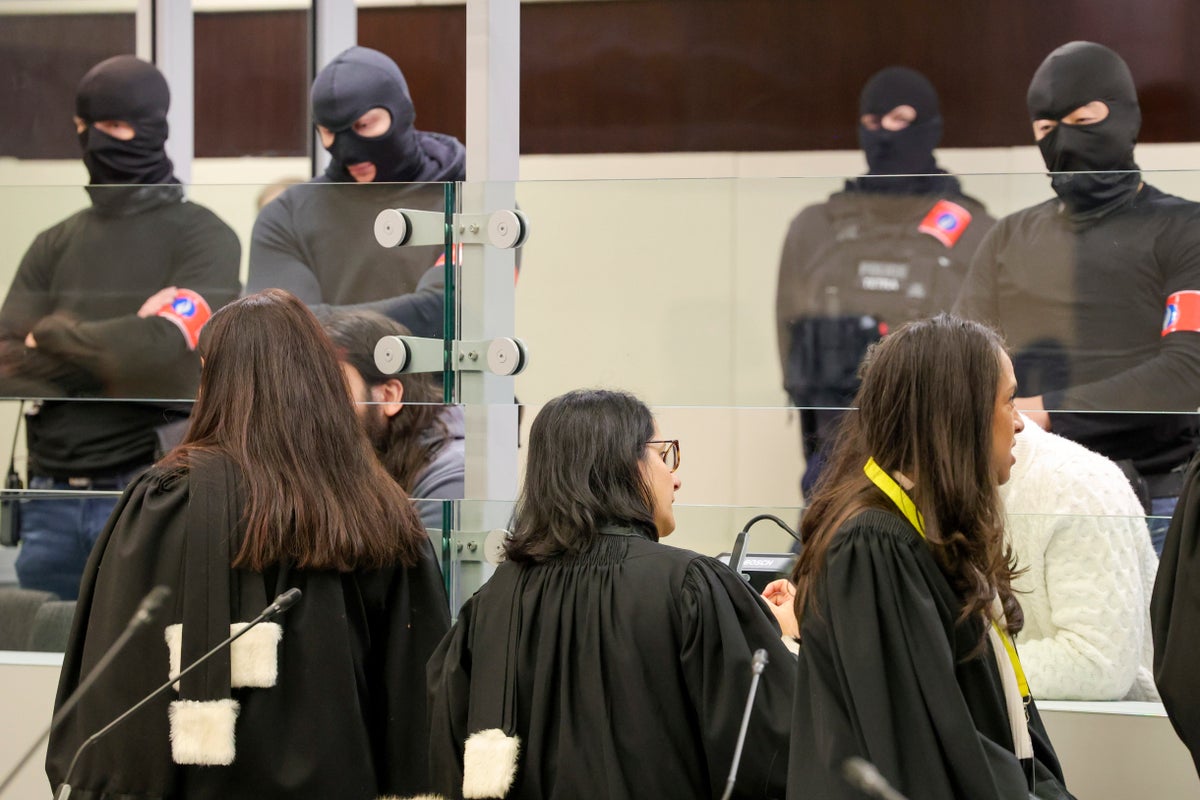
More than six years after the deadliest peacetime attack on Belgian soil, the trial of 10 men accused over the suicide bombings at Brussels airport and a subway station started in earnest under high security on Monday.
Among the accused is Salah Abdeslam, the only survivor among the Islamic State extremists who in 2015 struck the Bataclan theater in Paris, city cafes and France’s national stadium. He was brought to the court in an armored police vehicle and identified himself when called upon by the presiding judge.
The 10 defendants face charges including murder, attempted murder and membership in, or participation in the acts of, a terrorist group, over the morning rush hour attacks at Belgium’s main airport and on the central commuter line on March 22, 2016.
In all, 32 people were killed. Around 900 people were hurt or suffered mental trauma. If convicted, some of the accused could face up to 30 years in prison. The trial was initially expected to start in October but was pushed back to allow changes to the seating arrangements for the defendants.
More than 300 witnesses could be questioned during the hearings, which are being held at a court located at the former headquarters of NATO on the outskirts of the Belgian capital and are expected to run for six to nine months.
Most of the first week is expected to be taken up with legal formalities and a public reading of the indictment and charges, a document around 500 pages long.
Abdeslam, who was sentenced to life in prison without parole over the attacks in the French capital, was joined in the dock in Brussels by his childhood friend, Mohamed Abrini, who walked away from the Belgian capital’s Zaventem airport after his explosives failed to detonate.
Abrini has been sentenced to life in prison with no possibility of parole for 22 years for charges including complicity to terrorist murder in the Paris attacks trial.
Oussama Atar, who has been identified as a possible organizer of the deadly attacks on both Paris and Brussels, will be tried in absentia. He is believed to have died in the Islamic State’s final months of fighting in Iraq and Syria.







